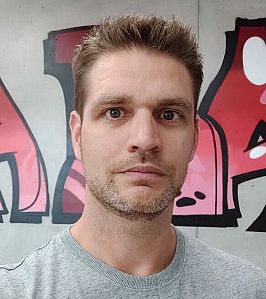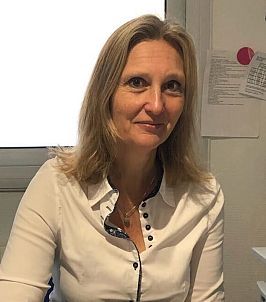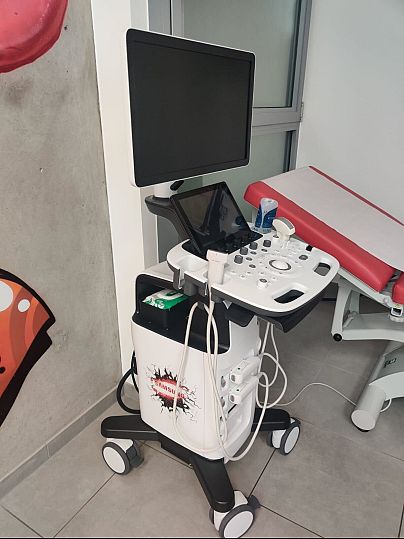General practitioners in France say they have too much administrative work and that patients can’t find a primary care doctor. They are going on strike on October 13.
Dr Josquin Pfeffer said he once had to reject a patient who wanted the general practitioner to be his primary doctor because the man lived so far away.
 ADVERTISEMENT
ADVERTISEMENT
 ADVERTISEMENT
ADVERTISEMENT
The patient was willing to drive 60 km since there were not enough options closer to home.
It is a situation all too common for many doctors in France that cannot accept new patients and are already working overtime to treat the ones they have.
The doctors say the French government’s efforts to address the health worker shortage are falling flat, with trade unions calling for a strike.
“Don’t get sick on Friday or Saturday,” Pfeffer told Euronews Next, adding that even his colleagues that are not typically organising are planning on participating in the strike this weekend.
It is part of a larger strike in France, with flights cancelled and trains changed.
Doctors, in particular, say they are going on strike, against a “disconnected government” and a new law proposal aiming to fix the problem that is being debated in the Senate this month.
“I was one of the youngest doctors in the area when I started. We have a whole team in our sector, we're quite young, but it's not going to last, unfortunately,” said 42-year-old Pfeffer who practices medicine in Ribeauvillé in eastern France.
“We see it everywhere. When older doctors leave, they are almost never replaced. We even have two young people who quit,” he added, saying that they had too many patients and were working too many hours.
Pfeffer is part of a new collective of doctors who are organising against the French government’s efforts to solve the worker shortage which they say is killing the system of family doctors in France.
“It’s about taking action on the ground and showing solidarity among all doctors,” Dr Sylvie Aouifi, a 54-year-old doctor in Caluire-et-Cuire outside of Lyon, told Euronews Next. She is in charge of the Rhône chapter of the collective.
“We are not part of a union. We all come from different unions or are non-unionised. The idea was that in a local area, all doctors would join together in a protest for the disappearance of family medicine as it is currently announced,” she added.
Aouifi will also go on strike on Friday and said she wants to keep the “humanity” of France’s health system intact.
Filling gaps in the system
Health minister Aurélien Rousseau has said that the coming years will be "stretched" for the health sector but that the government is working on it.
To fill the gaps, pharmacists will now be able to prescribe antibiotics for urinary tract infections and throat infections.
The new law that is being debated in the Senate after passing the Assemblée Nationale, France’s lower house of parliament, would also create a referring nurse that could work with doctors and pharmacists.
“We don’t have enough doctors, that is undeniable, but it’s not a reason to replace us with nurses who aren’t trained,” argues Pfeffer, who points out that a mistreated throat infection can lead to serious complications.
The GPs also say that they are wasting time on administrative tasks instead of being able to treat patients.
“We have seen an administrative overload weighing on doctors,” Aouifi said.
“We are asked for so much administrative work that we no longer have enough time to treat our patients the way we like and practice medicine the way we want”.
It includes updating patients’ online spaces, with many health professionals worrying about the protection of these sensitive documents in the government’s systems.
‘We feel harassed’
Aouifi adds that an increasing number of doctors are being investigated on the number of sick leave forms they put out.
“What has changed is the climate of continual suspicion that the social security or the government establishes towards doctors,” she said.
“We receive letters which are more and more unpleasant and I think we feel harassed,” she added.
Rousseau told French public radiothat sick leave recommendations had increased by 7 per cent, and thus the health ministry was looking into the situation.
“We would like to see and understand what is happening, because it’s 7 per cent that we pay and it’s money we can’t put elsewhere,” the health minister said on France Inter.
The ministry did not respond to Euronews Next’s request for comment.
Doctors have also been asking for an increase in price for consultations, due in part to high inflation.
Earlier this year, most of the trade unions representing doctors rejected an agreement with France’s health insurance programme but later learned that the price of consultations would rise by €1.50.
The GPs argue that with high inflation the costs of treating patients has gone up. The last time the consultation price increased was in 2017 when it went from €23 to €25.
Now, for GPs it will go up to €26.50, although some have started charging more.
Pfeffer points out that the money he makes also goes to the investments in his practice. The five doctors there employ two secretaries and someone to clean the premises.
He recently bought an ultrasound machine for €25,000 and pays thousands for access to an online appointment system. He argues the charges add up.
Some of the problems echo the concerns of other health professionals, with a recent survey showing that one in three nurses globally have seen patients die due to staffing shortages.
While these French doctors admit that the staffing issues are difficult to solve, they argue that it shouldn’t be done at the expense of France’s family medicine system.
“The main goal of our movement is really to keep our freedom of practice and not have an assembly line of patients every ten minutes just because more patients are being seen. Seen at what cost?” Aouifi said.













